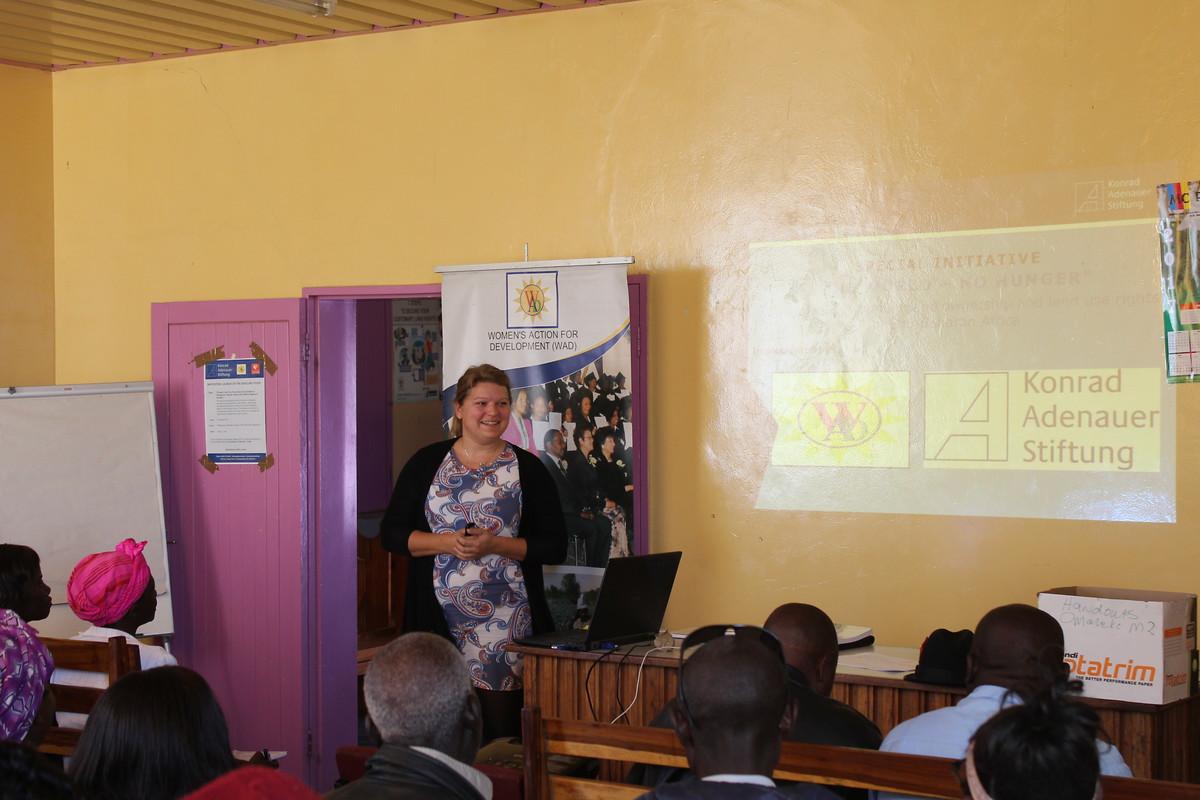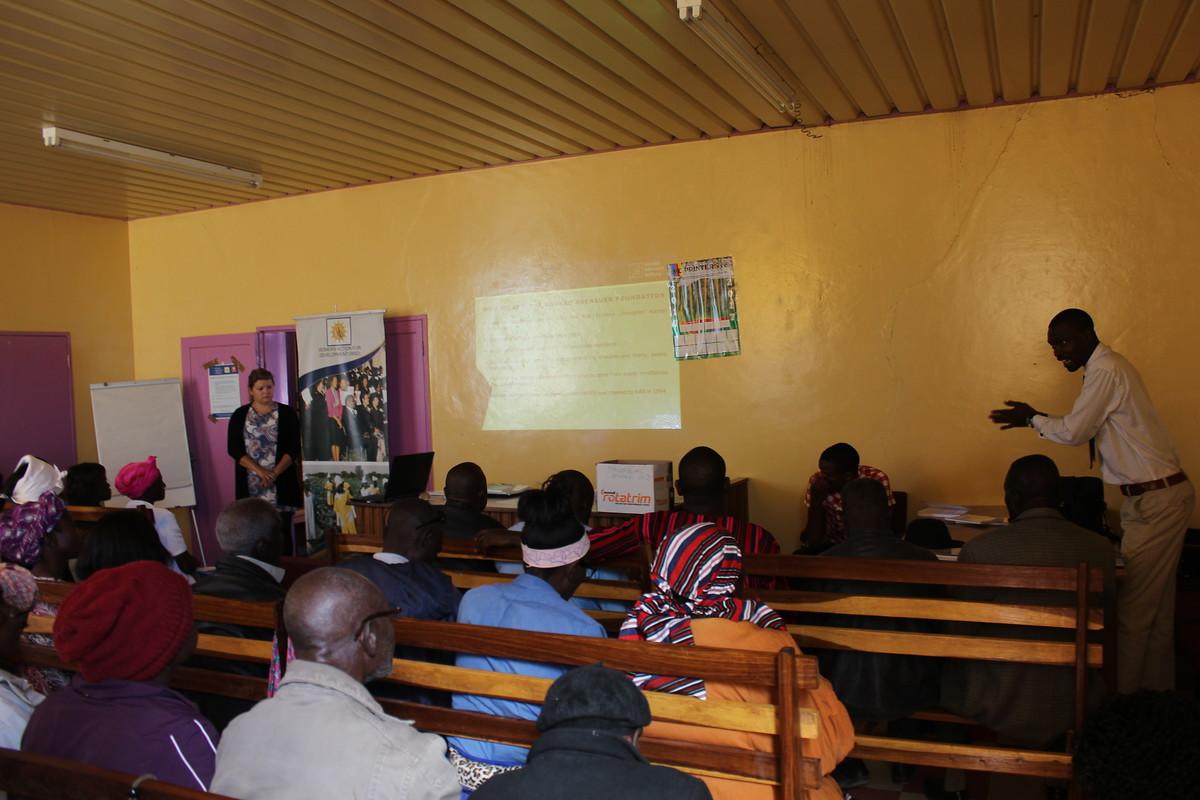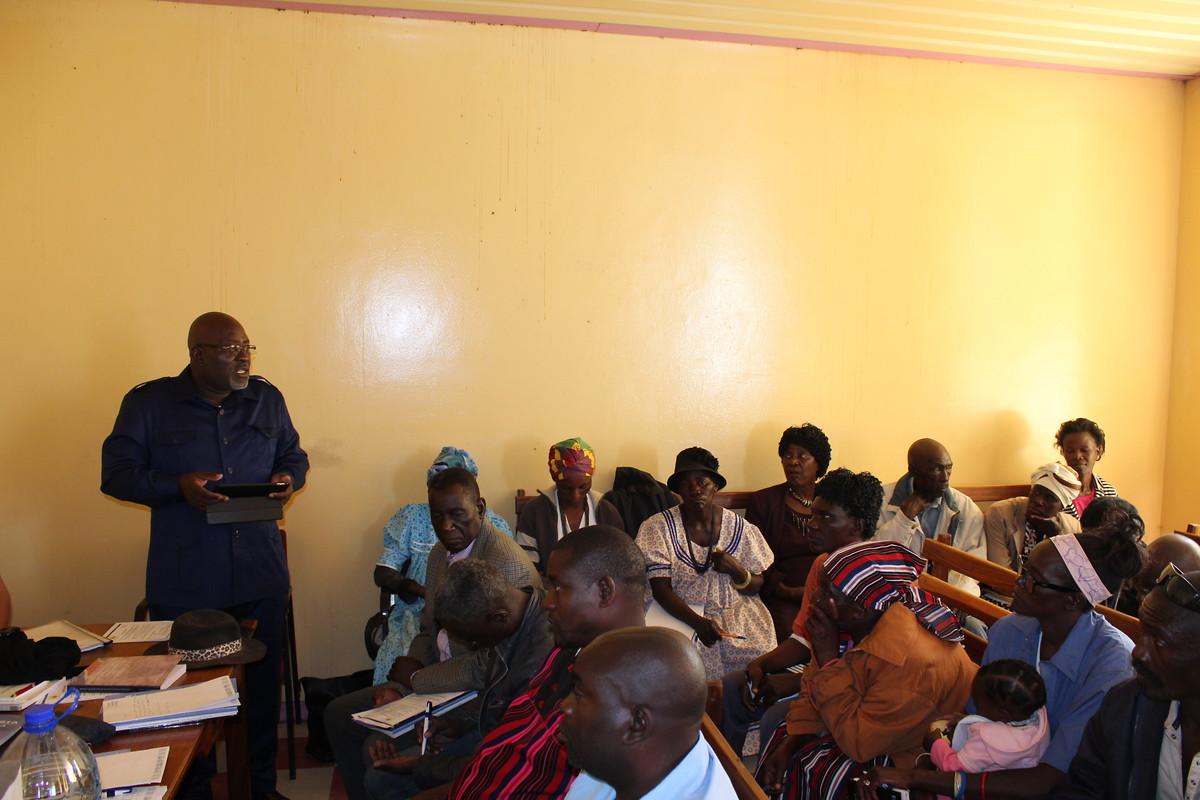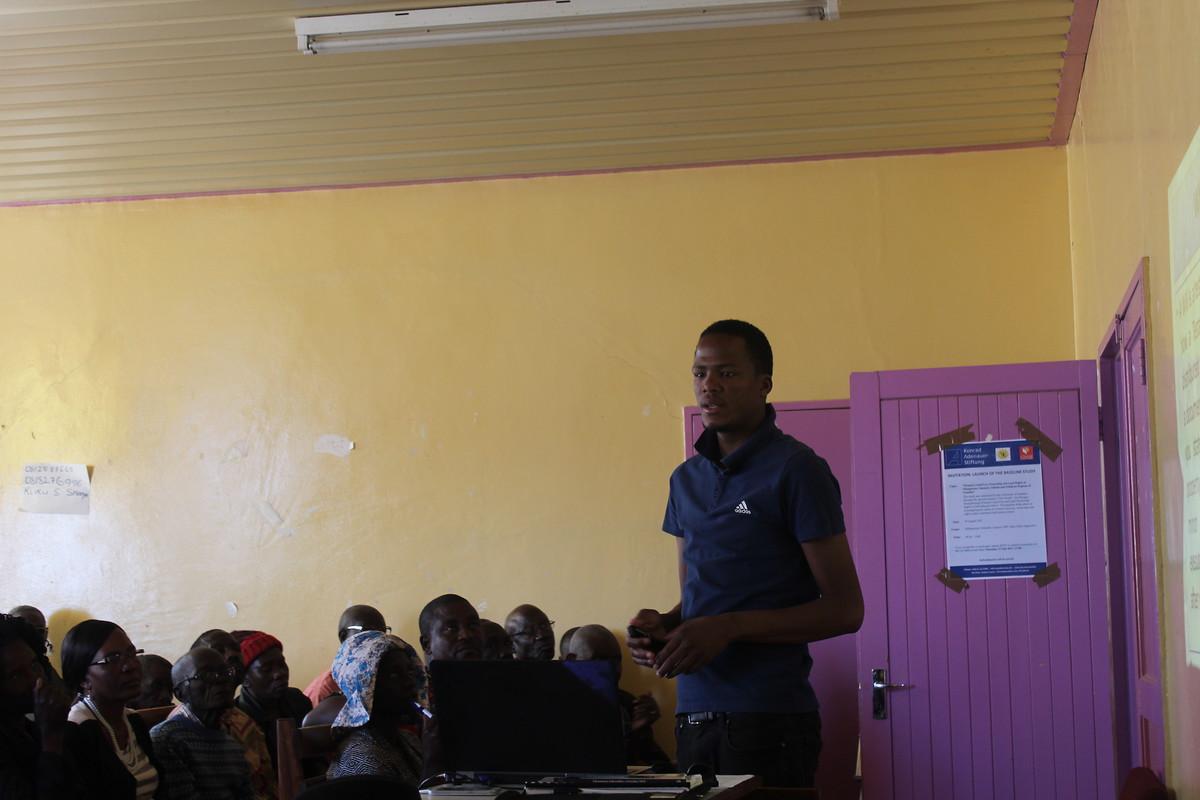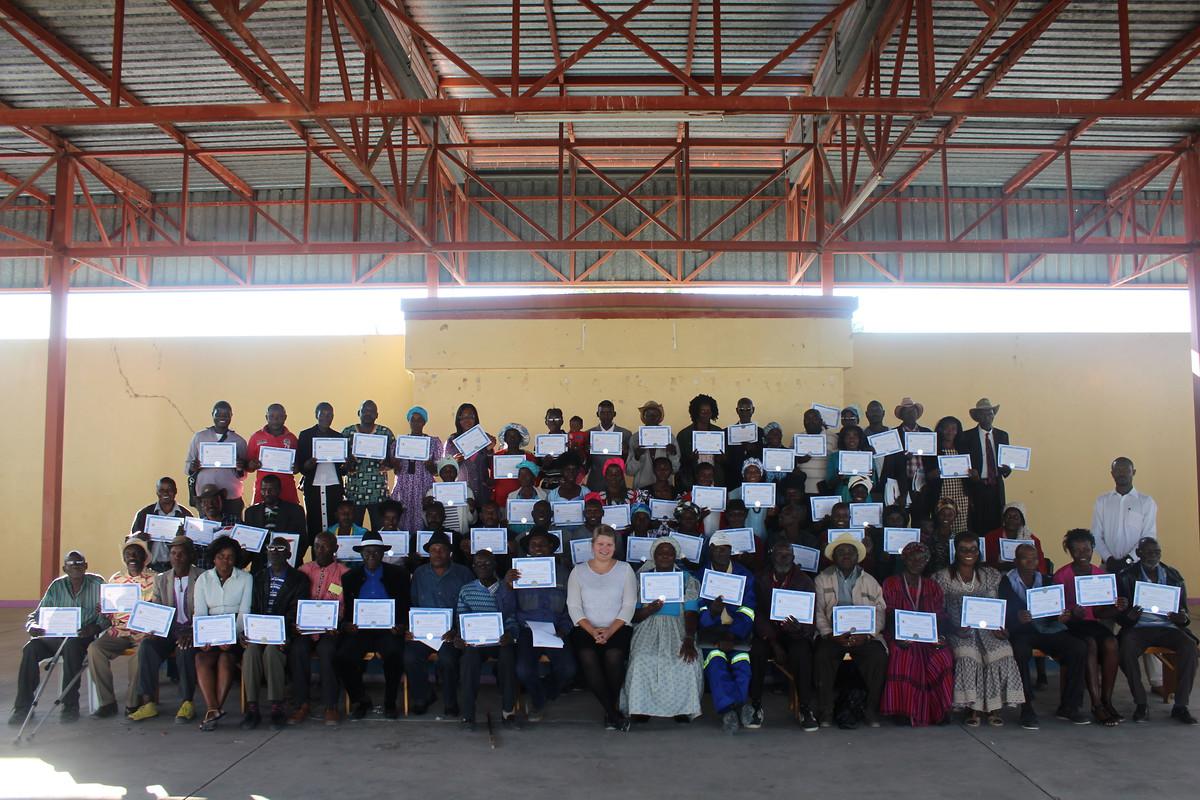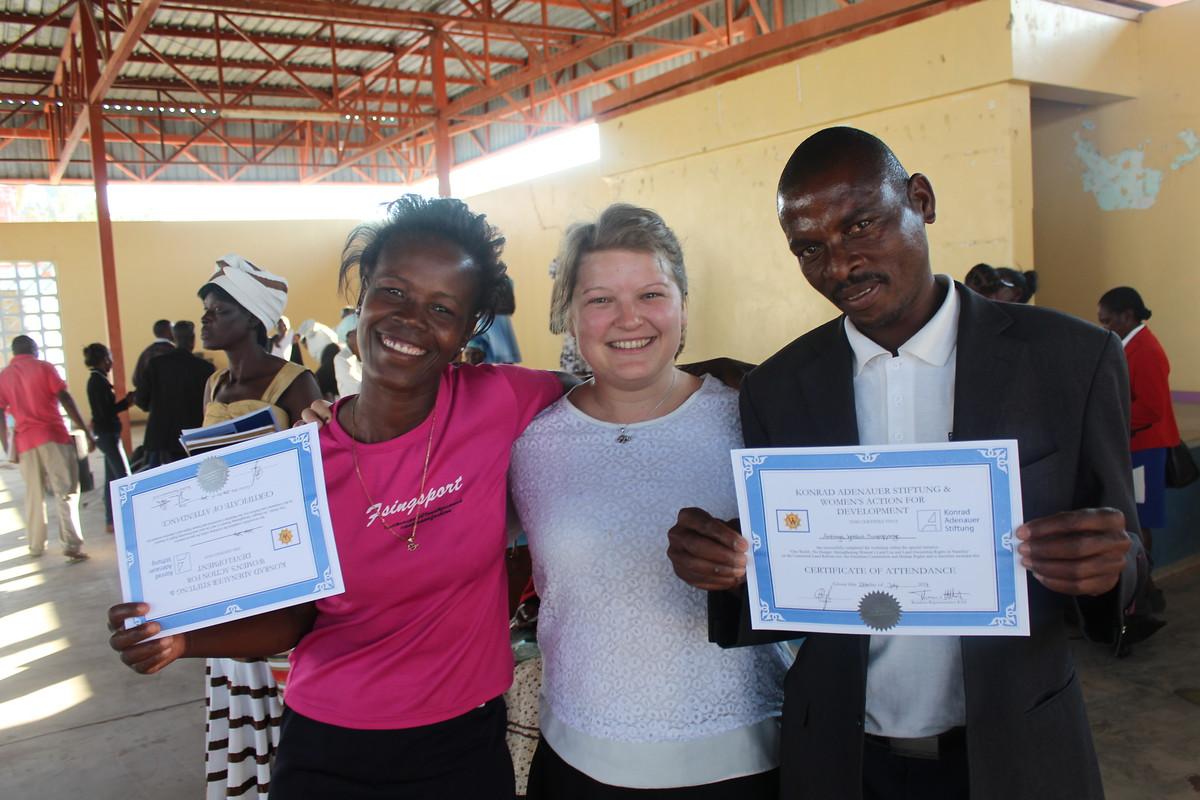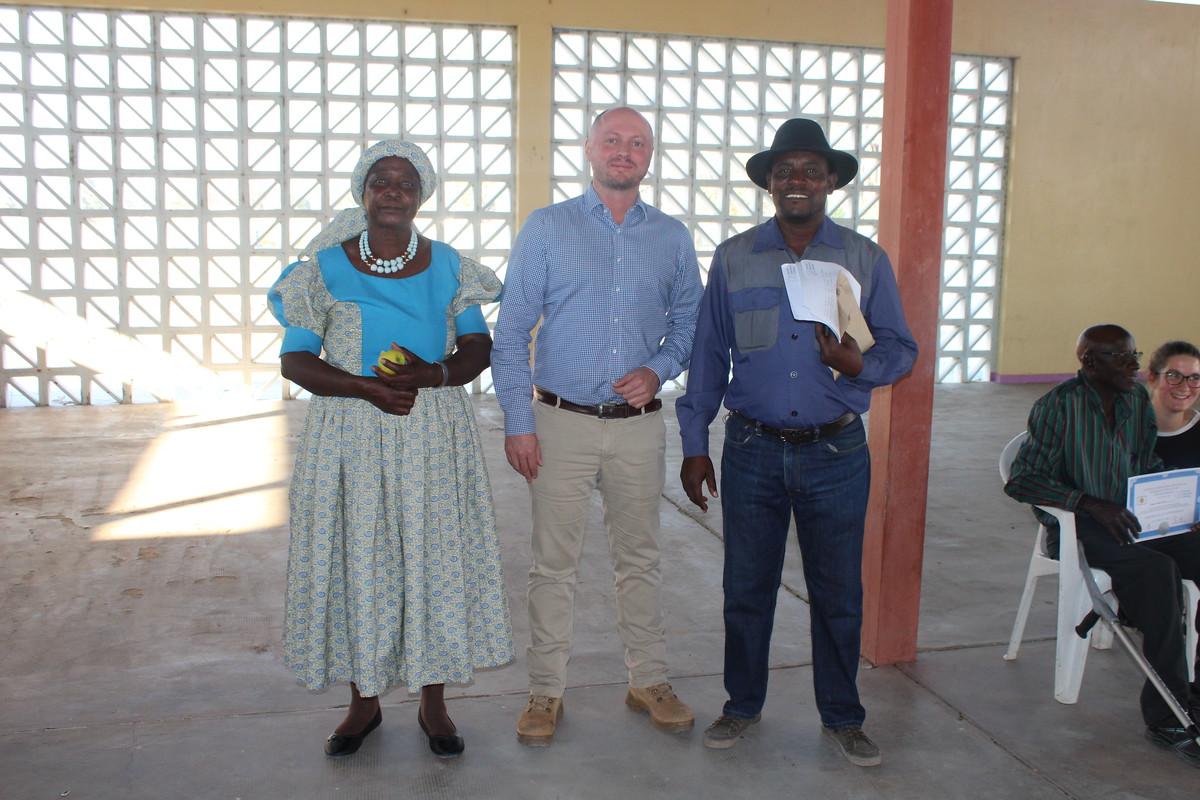For the first time, the into Oshiwambo translated Namibian Constitution commissioned by the Konrad Adenauer Foundation was given out to the workshop participants, which caused great excitement. The workshop started with a short introduction of the two implementing organizations: the Konrad Adenauer Foundation and Women’s Action for Development (WAD), followed by a warm welcoming of the chairperson of the Omusati Regional Council, Hon. Modestus Amutse, who examined the importance of such workshops. The first workshop day focused on defining the participant’s workshop expectations as well as giving an introduction in the role and power of traditional leaders, especially in relation to their role in land right issues. The second day of the workshop reacted to the wish of several participants to learn more about the Namibian constitution, the role of human rights as well as gender equality. The chief of the Uukolonkadhi Traditional Authority was welcomed as a special guest on that day. Following questions about gender equality and the meaning of human rights, the third workshop day started with a lively discussion about the charged relationship between corruption and applicable, statutory law. This was followed by the introduction of the next workshop topic, law of succession. In this context, the workshop participants gained new knowledge in terms of possibilities to make a will and its meaning for the re-allocation of property and land rights. The third day of the workshop ended with an introduction to the Communal Land Reform Act. The last workshop day eventually connected the topics of law of succession and duties of traditional authorities by dealing with questions of allocation and re-allocation of land rights in case of death as well as the traditional authority’s role herein. Part of the discussion that occurred in this context was the question of how to allocate land between several wives and their children in case of a landowner’s death. All discussions were held in consideration of the principles of the Communal Land Reform Act. Finally, the need of sharing the newly gained knowledge in the villages in order to expand and protect women’s land using rights at the best possible rate was underlined on the last workshop day. Afterwards, the workshop participants proudly received their certificates of attendance. The participant’s positive feedback and the constantly high number of participants demonstrate the Onesi workshop’s success.
In this context, we would especially like to thank Uukolonkadhi Traditional Authority for the provision of the event venue.



